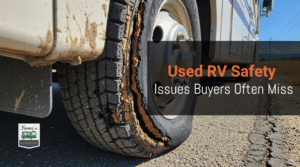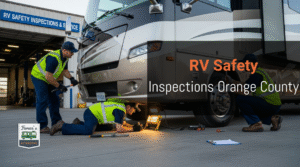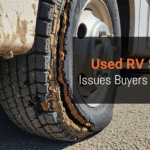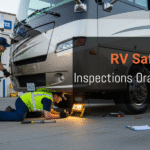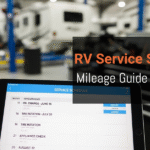Electrical issues in RVs can be frustrating, but understanding your system can make a big difference. Knowing how to troubleshoot common problems, like tripped breakers or blown fuses, can save you time and money on repairs. With the right tips and a bit of knowledge, you can confidently address these challenges on your own.
At Farace Automotive & RV Center, we know that maintaining your RV’s electrical system is crucial for a smooth journey. You rely on your RV for comfort and convenience, and electrical failures can put a damper on your adventures. By familiarizing yourself with your RV’s various electrical systems, you can ensure that everything from lights to appliances runs smoothly.
Our guide will provide essential troubleshooting techniques and maintenance tips to help you keep your RV in top shape. Whether you are a seasoned traveler or new to RV life, these insights will empower you to tackle electrical issues effectively.
Basics of RV Electrical Systems
Understanding the basics of RV electrical systems is essential for troubleshooting and maintenance. This section covers the key differences between 12V DC and 120V AC systems, the main components of your RV electrical system, and how various power sources function.
Understanding 12V DC vs. 120V AC Systems
Your RV has two main electrical systems: 12-volt DC and 120-volt AC. The DC system powers lower-voltage items, like lights and water pumps. This system runs from the RV battery and is crucial for off-grid camping.
On the other hand, the AC system powers larger appliances, like air conditioners and microwaves. This setup connects to a shore power source or an inverter that converts DC to AC. You will typically find 30-amp and 50-amp systems in RVs, which determine how much power can be drawn from each connection.
Key Components of an RV Electrical System
Your RV’s electrical system contains several key components. The battery stores energy for the 12V DC system. A power converter changes AC power to DC for charging the battery and running 12V appliances.
An inverter is the opposite; it converts DC power from the battery into AC power when you are not connected to shore power. Additionally, a generator can provide backup power to your RV, especially when off-grid.
Common elements also include your fuse panel, which protects your system from overloads, and your circuit breakers, which control the AC power supply.
How Power Sources Work in an RV (Shore Power, Batteries, Generator, Solar)
Your RV can utilize multiple power sources. Shore power is the most common when parked at campgrounds with electrical hookups. The shore power connection allows you to access 120V AC for appliances.
Besides shore power, the RV battery provides 12V DC power for essential systems when you are off the grid. Generators serve as a backup, providing AC power when needed.
Some RV owners also install solar panels to harness solar energy. Solar systems usually come with a charge controller to manage the power from the panels and ensure the battery is charged efficiently.
Common RV Electrical Issues and Troubleshooting Tips
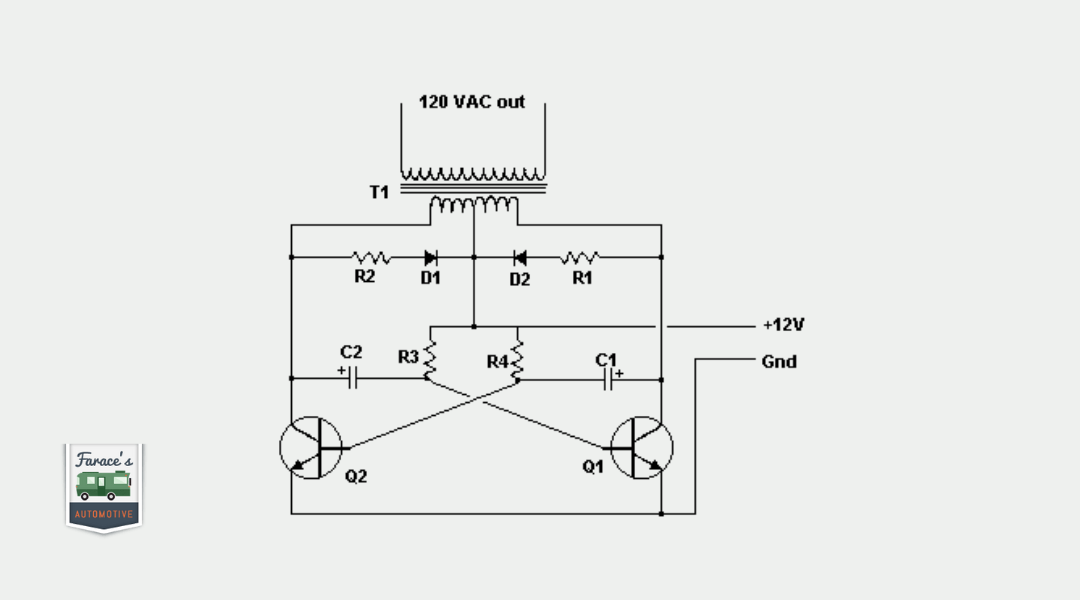
When you own an RV, understanding its electrical system is crucial for enjoying your travels. Common issues like power outages, battery problems, and flickering lights can disrupt your journey. Knowing how to troubleshoot these problems can save you time and frustration on the road.
Power Outages – Causes and Solutions
Power outages in your RV can stem from various causes. A common reason is malfunctioning batteries. If your batteries are dead, your entire system may fail. Check the battery terminals for corrosion and ensure they are tightly connected.
Another potential issue is a tripped circuit breaker. Locate your breaker panel and see if any breakers are in the “off” position. Resetting them can restore power. If the breaker trips again, investigate further for underlying issues.
Battery Problems – Diagnosis and Fixes
Dead batteries are a frequent problem in RVs. Regularly check the battery charge level with a multimeter. If it shows low voltage, it’s time to recharge or replace the battery.
Corrosion on battery terminals can also cause problems. Clean the terminals with a mixture of baking soda and water. Ensure all connections are tight to prevent power loss. If your RV uses multiple batteries, test each one individually to find the faulty unit.
Circuit Breakers and Fuses – How to Check and Replace
Circuit breakers and fuses protect your RV from electrical overloads. You should regularly check these components. Start by inspecting the breaker panel for any tripped breakers or blown fuses.
To replace a blown fuse, pull it out and insert a new one with the same amp rating. When dealing with breakers, if you notice consistent tripping, consult a professional to discover underlying issues affecting your electrical system.
Faulty Outlets and Appliances – Troubleshooting Steps
If your outlets aren’t working, you need to troubleshoot them step by step. First, check if the circuit breaker has tripped. If it hasn’t, test the outlet with a multimeter to verify if it’s receiving power.
If appliances like the refrigerator or furnace aren’t working, examine the appliances themselves. Unplug them and inspect their power cords for damage. Sometimes, resetting an appliance can help. If the issue persists, it may require professional servicing to ensure safe operation.
RV Lights Flickering or Not Working – Causes and Fixes
Flickering lights can be annoying and indicate electrical issues. Start by checking the lightbulbs. A loose bulb can cause flickering. Make sure to tighten or replace them as needed.
If the problem continues, inspect the wiring connected to the lights for any visible damage. A faulty connection may be to blame. For more severe issues, consider consulting an RV tech to analyze your wiring and electrical system for deeper faults.
Preventative Maintenance for Your RV Electrical System
Taking care of your RV’s electrical system is essential for reliable performance and safety on the road. Regular maintenance can help prevent issues that lead to power failures or unsafe conditions. Below are key tasks that will ensure your RV’s electrical system remains functioning well.
Regular Battery Maintenance and Testing
Your RV’s battery is vital for powering essential systems. Regular battery maintenance includes checking the charge level and cleaning the terminals. Corrosion around battery connections can lead to poor performance.
You should perform a load test periodically to evaluate battery health. This test shows how well your battery can provide power under load. If your battery is more than three to five years old, it may need replacement sooner than later.
Make sure to check the water level in lead-acid batteries. If needed, add distilled water to keep them functioning properly.
Checking and Cleaning Electrical Connections
Loose or corroded connections can cause electrical issues. Make it a habit to inspect all electrical connections regularly. Look for any signs of wear or corrosion.
Using a wire brush, clean connections if you notice corrosion. A good connection prevents electrical resistance, which can lead to overheating.
Tighten any loose bolts or screws. This simple step can improve the reliability of your electrical system.
Pay special attention to connections at GFCI outlets, which are crucial for safety. Ensure these outlets are functioning properly by pressing the “test” button periodically.
Managing Load and Preventing Overloads
Understanding your RV’s electrical load helps prevent overloads. Each appliance or system has a specific power requirement. Knowing these numbers ensures you don’t exceed your RV’s capacity.
You should plan how you use multiple devices at once. For example, running the air conditioning while cooking can draw too much power.
An easy way to manage your load is by using a power monitor. This tool can help you track real-time usage, allowing you to adjust as needed.
Educate yourself on the warning signs of overloads, like flickering lights or tripped circuit breakers. Address these issues immediately to avoid damage.
Ensuring Proper Grounding and Wiring Safety
Proper grounding is vital for electrical safety. It prevents electrical shocks and improves the performance of appliances.
Inspect the wiring regularly for any signs of wear or damage. Ensure that all connections are securely grounded to minimize risks.
Utilize a multimeter to check for continuity in your wiring. This tool helps you ensure that electricity can flow correctly through your system.
If you spot any faulty wiring, it’s crucial to repair or replace it as soon as possible. Investing time in proper wiring and grounding will enhance your RV’s safety while allowing for a more enjoyable road experience.
Upgrading and Enhancing Your RV Electrical System
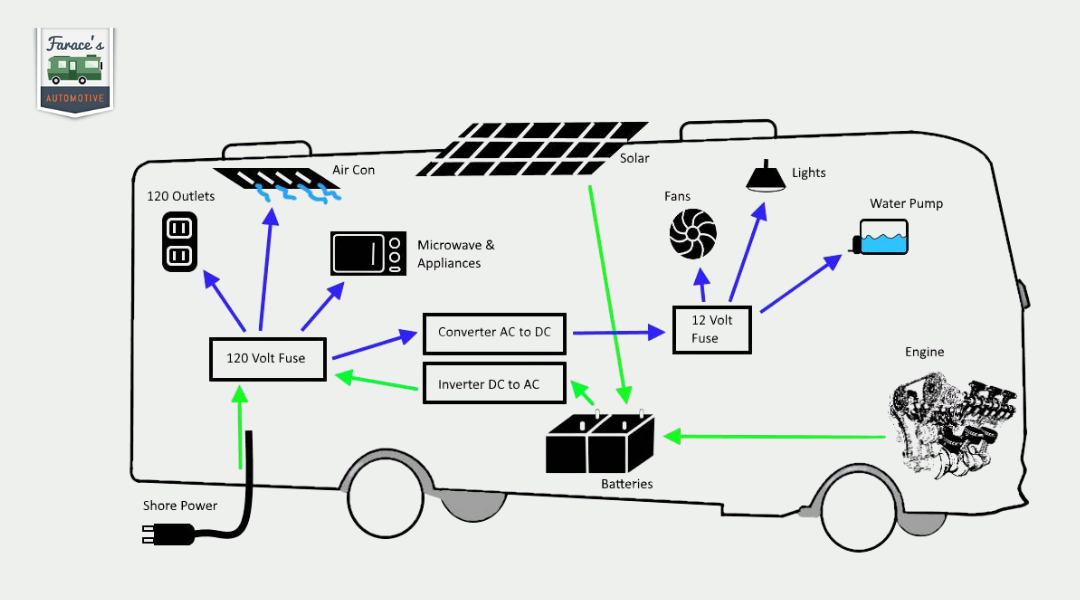
Upgrading your RV’s electrical system can significantly improve its performance and reliability. By making informed choices about batteries, solar power, surge protectors, and smart technology, you can enhance your travel experience.
Choosing the Right Batteries for Your RV
Selecting the right batteries is crucial for optimal power management. You often have two main types: lead-acid and lithium.
Lead-acid batteries are typically cheaper but have shorter lifespans and require regular maintenance. In contrast, lithium batteries are more efficient, allowing for deeper discharges and quicker recharges.
When choosing, consider your energy needs and how often you use your RV. A good rule of thumb is to calculate your daily usage and find batteries that can handle that capacity to avoid running out of power during trips.
Solar Power for RVs – Benefits and Installation Tips
Installing solar panels can significantly increase your RV’s self-sufficiency. Solar power allows you to harness energy from the sun, giving you more flexible camping options, especially in remote areas.
First, assess your power needs. Determine how many solar panels you’ll need based on your energy consumption. Usually, 200-400 watts is a good starting point for most RVs.
For installation, mount panels where they will receive maximum sunlight. You may consider using a flexible solar panel if weight or space is a concern. Don’t forget to invest in a quality inverter to convert the DC power generated by the panels into usable AC power.
Surge Protectors and Voltage Regulators – Why You Need Them
Surge protectors and voltage regulators are essential for protecting your RV’s electrical system. These devices safeguard against electrical surges, which can damage sensitive electronics.
A surge protector should be a top priority, especially if you regularly connect to shore power. It will help shield your devices from sudden spikes in electricity.
A voltage regulator is also important. It keeps the voltage within a safe range, preventing overvoltage or undervoltage situations that can harm your RV’s systems. Invest in a reliable model to avoid costly repairs.
Smart Technology and Monitoring Systems for RVs
Integrating smart technology can revolutionize how you manage your RV’s electrical system. Monitoring systems allow you to keep track of battery levels, solar energy input, and power consumption.
Smart devices can provide real-time updates directly to your smartphone, giving you more control over your energy management. Look for systems that offer easy installation and user-friendly interfaces.
With these technologies, you can optimize your power usage, ensuring that you always have enough energy for your needs, especially during extended trips.
When to Seek Professional Help for RV Electrical Issues
Recognizing when to seek professional help for RV electrical problems is crucial for your safety and the longevity of your vehicle. Some signs indicate that a deeper issue may exist, and knowing how to find a reliable repair shop can make a significant difference.
Signs That Indicate a Serious Electrical Problem
Certain symptoms point to serious electrical problems in your RV. You should seek professional help if you notice:
- Persistent power failures even after replacing fuses or resetting breakers.
- Flickering lights that don’t stay consistent.
- Appliances that won’t turn on or are malfunctioning.
- Unusual smells or sounds, such as burning odors or popping noises.
Addressing these signs early can prevent more extensive damage and dangerous situations, such as electrical fires. It’s always better to be safe than sorry when it comes to your RV’s electrical system.
Finding a Reliable RV Repair Shop in Huntington Beach, CA
When searching for a reliable RV repair shop, you should consider a few key factors. Look for shops that have:
- Positive customer reviews and testimonials, indicating good service and reliability.
- Experienced technicians who specialize in RV electrical systems.
- Transparent pricing to avoid unexpected costs.
- Convenient locations that save you time in case of emergency repairs.
Contacting the shop beforehand to ask questions can also help you gauge their expertise and customer service before making a decision.
Why Choose Farace Automotive & R.V. Center for RV Electrical Repairs?
Farace Automotive & R.V. Center stands out for several reasons. Their team consists of certified technicians with extensive experience in RV electrical systems. They provide thorough diagnostics and repairs tailored to your needs.
Furthermore, they emphasize customer satisfaction by maintaining open communication throughout the repair process. Their commitment to using quality parts ensures that repairs last longer, giving you peace of mind on the road. Choosing a shop with a strong reputation, such as Farace Automotive & R.V. Center, can make a significant difference in the reliability and safety of your RV.
Conclusion
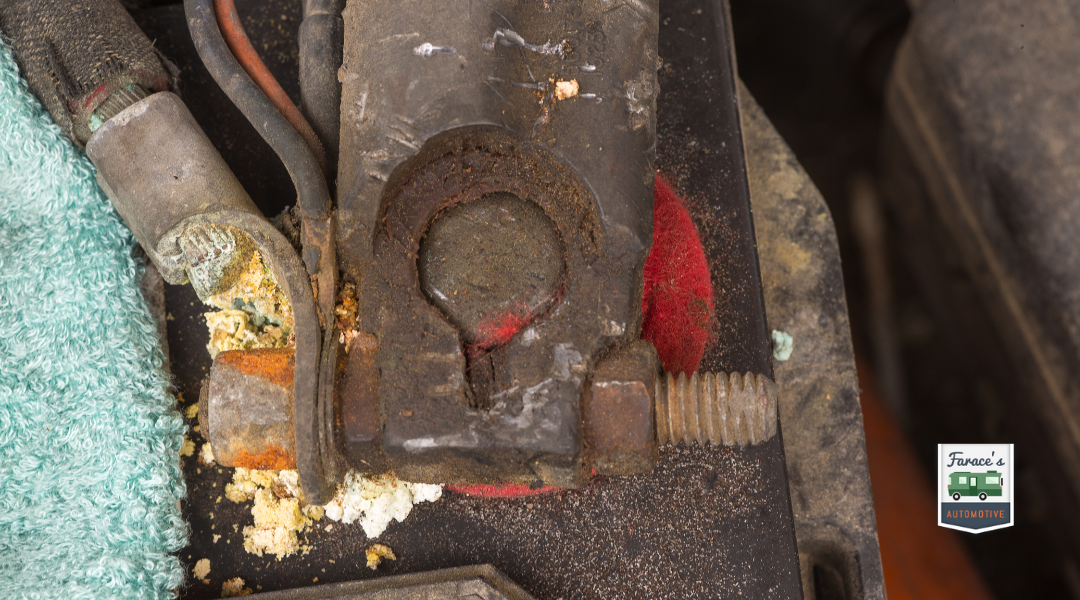
Understanding RV electrical systems is crucial for any RV owner. Knowing how these systems work helps you troubleshoot issues effectively.
Here are key points to remember:
- Dual Systems: Your RV operates on two main systems: a 12-volt DC system and a 120-volt AC system. Knowing the difference can help you diagnose problems.
- Battery Types: Familiarize yourself with the types of batteries in your RV. House batteries power appliances, while the chassis battery starts the engine.
- Common Issues: Watch out for tripped breakers and blown fuses. These are frequent problems that can disrupt power. Resetting breakers is usually a simple fix.
- Regular Maintenance: Schedule routine checks on your electrical systems. This can prevent larger issues and ensure your RV remains in good working condition.
By staying informed and proactive, you can manage your RV’s electrical systems with confidence. Proper care reduces the chances of unexpected problems while you’re on the road.



